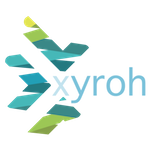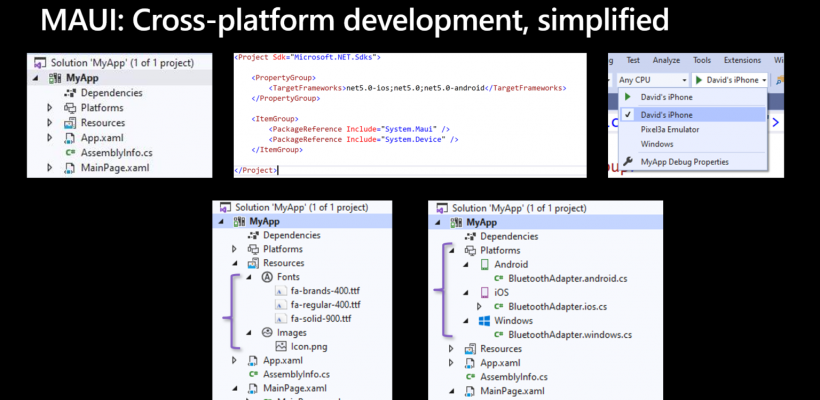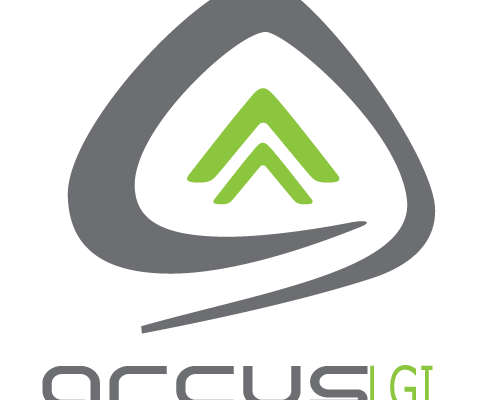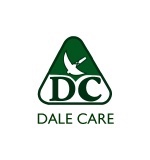Microsoft’s new cross platform software framework – What does it mean to your business?
Yesterday at the Microsoft Build conference they announced MAUI, the roadmap to their new cross platform software, single codebase framework, quoting from their release;
Introducing .NET Multi-platform App UI:
As we consider what building device applications will look like in a unified .NET, we see many devices across multiple platforms used, from Android and iOS to Windows and macOS. To address this need we are excited to announce a new first-class UI framework for doing just that: .NET Multi-platform App UI, affectionately call .NET MAUI.
This means a lot to us as developers, but what does it mean to you as business owners, decision makers, and end users? To your business?
App languages – how they differ
All computer software (apps are just software applications, all the same really) is traditionally designed to run on it’s intended platform, the Web, Windows PC, Apple Mac, iPhone, Android etc – an app written for one platform will traditionally be written in the language that platform expects, all these platforms have different native languages, ie an app written for one won’t work on another.
In layman’s terms, if you learn French it will stand you in great stead on a holiday to France, but pop next door to Spain and you’re stuck. Unless you learn Spanish too, but that’s twice as much work.
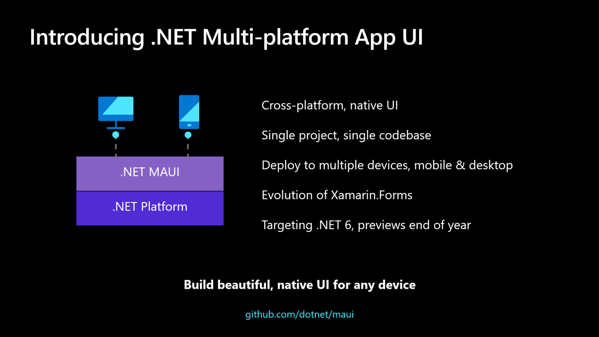
Multiple App Platforms
Which is where us developers come in, most developers speak more than one language, but certainly not all, and in the past you had to be careful that the language choice the developer was making for your project was because it was the right one for your needs. Not because it was the one they knew. But as IT expanded, people started using their own devices, and mobile computing became the norm it stopped being about which platform – Mac vs PC if you will, but which platforms – plural.
So if you ask a developer to create you a mobile app you are probably targeting iPhone and Android, two platforms, two languages (Objective C or Swift, and Java in case you were wondering!) – so that’s actually two apps you need, twice the work, twice the support, twice the cost!!! If only there were some (good – there are bad ways, we don’t do them) way of creating good, native, performant apps on both platforms, from one codebase, one product to support, and only one to pay for – cheaper is better right?
How can Xyroh help?
Well for most cases there is, it’s niche, here at Xyroh we do it, and have spent a lot of time and resources investing in these skills, the platform we use is Xamarin from Microsoft, and in *most* cases, certainly B2B projects it’s perfect – outputting great, custom mobile apps for iPhone, Android, Windows Phone – Tizen even – at good value to your business.
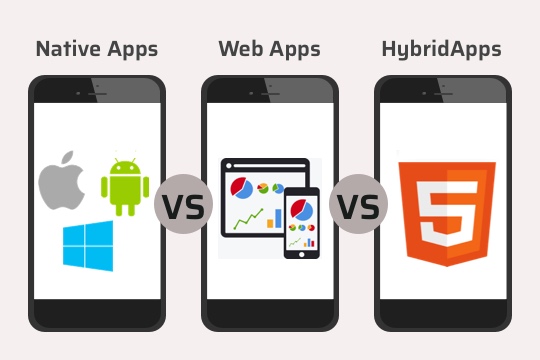
Well that’s what this announcement was about, the next stage. Microsoft’s new MAUI framework will allow us to create line of business apps that run on;
– Android
– iOS (iPhone and iPad)
– Mac OS
– Windows
All from one project, one codebase, one cost – but much more value. So if you have a need for apps, be it a mobile app, a desktop app, or even a web app in your business then we’d love to talk to you.
Related Articles:
– Native App, Hybrid App, or somewhere in between?
– Xamarin Cross Platform Application Development – Book Review
Andy, the founder of Xyroh, is a mobile app developer, specialising in cross platform mobile apps, iphone apps, android apps, as well as web applications and desktop software for business clients across the North East – feel free to contact him to engage his services
Arcus Platform version 3.0 updates
Busy start to 2020 for the Askaris Arcus platform, big version 3.0 release translating both the portal and offline tablet interfaces into the end users native language, which will be huge for our client’s Brazilian, Norwegian and other global Operations.
Up next will be a multi-year improvement to the Dropped Object inspection framework, and further translation improvements – including a self learning multi language translation process – this will allow reports to be carried out in a a native language and then proof read and translated into multiple additional languages – another huge time saver.
The Arcus platform is used predominantly in the OIl and Gas sector to facilitate audited regulatory inspections, but as a full Asset Management suite it has uses in many other sectors.
#assetmanagement #inspectionsoftware #askaris #arcus
Find out more at – https://askaris.com/
Dale Care – Call Log Comparison Case Study
Prior to Xyroh, Andy was the founder of dotUK (A software development firm based out of Yarm and Stockton on Tees here in the North East), again specialising as a developer in mobile apps, web applications and desktop software for a number of business clients – this is one of those portfolio case studies
Summary
Dale Care are a home care provider based in the North East of England, and operate in County Durham. They have an existing call confirmation system that confirms calls within the Staffplan system, however logged calls did not tally with actual calls, and it was time consuming to manually compare
Technical
Client Dale Care – North East and County Durham based home care provider
Platforms Windows Server, SQL Server, Staffplan, NEC Phone System
Technologies Python, Windows Exe
Development Software Development, Windows Server
Case Study
A key factor in how Dale Care manage, and bill their home care services is through quickly, and accurately confirming calls made by carers to clients at their homes, into the Staffplan management software specific to the home care industry. This is done primarily by the carer ‘phoning home’ from the client’s home, and the CLI is matched, recorded, and the visit logged into Staffplan.
This matching is currently done by a call logging box the runs in parallel to the existing NEC phone system and is monitored by a standalone windows server based application. However not all calls are being confirmed within Staffplan, yet the are identified in the NEC Phone System logs, which leads to discrepancies in payroll claims, and potentially under billing for clients as the system does not believe home visits have been made.
As a short term solution dotUK provided a daily analysis tool that runs as a scheduled task that picks up all call logs on the dedicated inbound phone system trunk and attempts to match them with confirmed calls in Staffplan, this matching is done with a time threshold to allow for subtle time logging differences, and highlights any calls the phone system has identified that are not properly confirmed. These calls are then output on a daily management report that allows Dale Care staff to batch update Staffplan, and correct the anomalies, and saving significant man-hours in chasing manually reported discrepancies.
Both the NEC Phone System, through the My Calls add on, and Staffplan utilise MS SQL Server s the back end database, and for simplicity dotUK chose to utilise a simple Python script compiled as a 64bit Windows Server executable running as a scheduled task, as the method to implement this call comparison.
